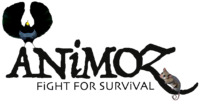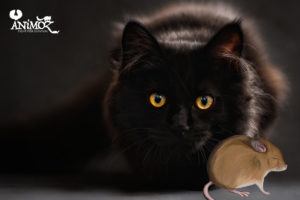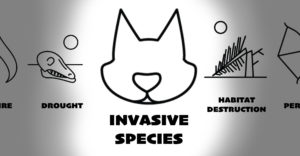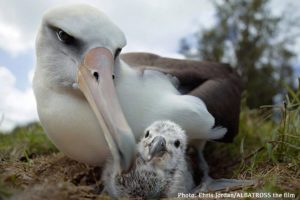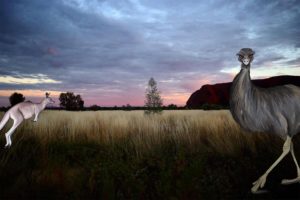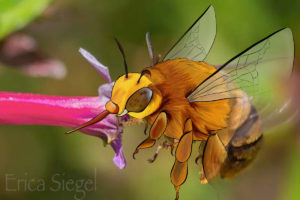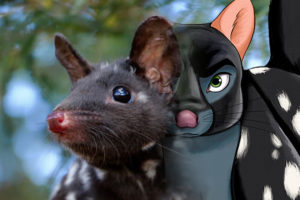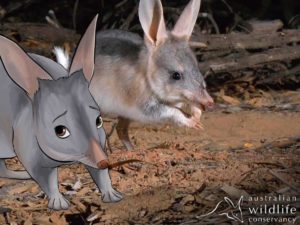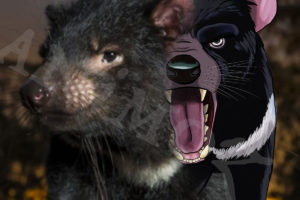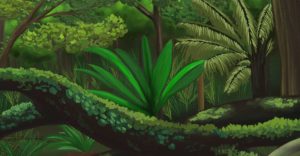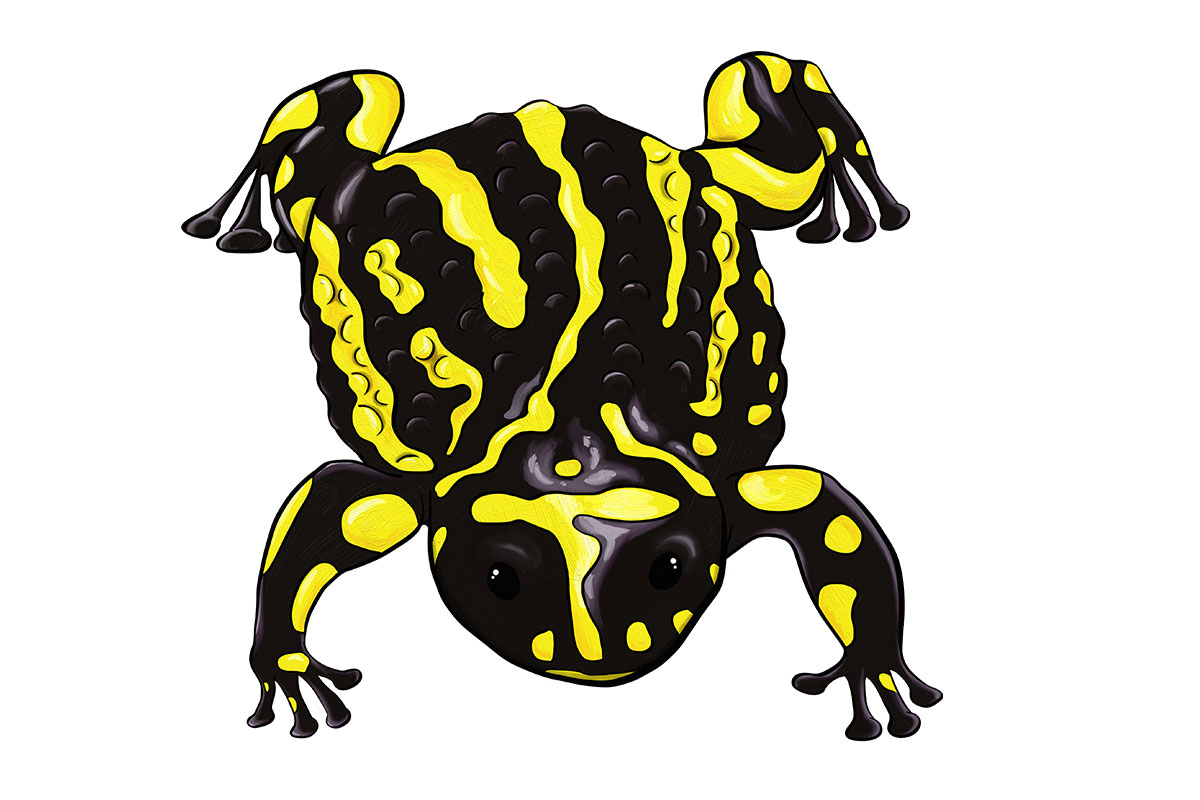
BOREE - Southern Corroboree Frog
“A trickle of water is all that smothers the birdsong in this crisp Mountain dawn, 1300m above sea level in a muddy bog. Other creatures are slowly waking and venturing out from their logs and burrows. Croaking starts to sound over the grasses, and BOREE joins in with his notable ‘SQUELCH’! He has adapted to a life void of fear, for although he can fall prey to FERA and some other Predators, his VENOM Superpower helps keep him safe. His real threat comes from something unseen; a disease striking at species like his. This is made worse as BOREE loses his home to human encroachment. He sounds his call, hoping a female BOREE will hear him. They are Critically Endangered, so every chance to grow the population is important…”
ANiMOZ #200
Code: BOREE
Common name: Southern corroboree frog
Taxonomy: Pseudophryne corroboree
Level: OMNI | Form: Flee | Status: Highly Rare
BiOME: Mountain | Forest | River
Overcomes: Flood
Superpowers:
VENOM
BOREE is the only frog to make her own toxins (rather than forming it via a food source), and she excretes this through her skin when threatened! Whilst the ‘VENOM’ Superpower isn’t directly named after this, as it is a poison more than a venom, it does mean that this special frog will beat any ‘venom’ species she comes up against in a Clash!
THREATPOSE
His Threatpose power lets others know that he’s poisonous, and not worth their time! This Superpower is also called aposematism, which is nature’s way of communicating danger through bright colours, and patterns like stripes. This powerful adaptation enables BOREE to warn off predators before they learn about his poison the hard way - which wouldn’t be good for him either!
Weaknesses:
DISEASE
Disease is a real threat to BOREE - particularly chytridiomycosis, which results from the widespread amphibian chytrid fungus (Batrachochytrium dendrobatidis). Sadly, this fungus has devastated populations of many species, including those of BOREE.
FERA
FERA is the common eastern froglet, who lives in the same area as BOREE. Unfortunately for BOREE, FERA is a reservoir host for chytrid fungus, meaning she doesn’t suffer from the disease but does carry the fungus, passing it on to BOREE! If BOREE comes up against FERA in a Clash, it is a certain, automatic loss...
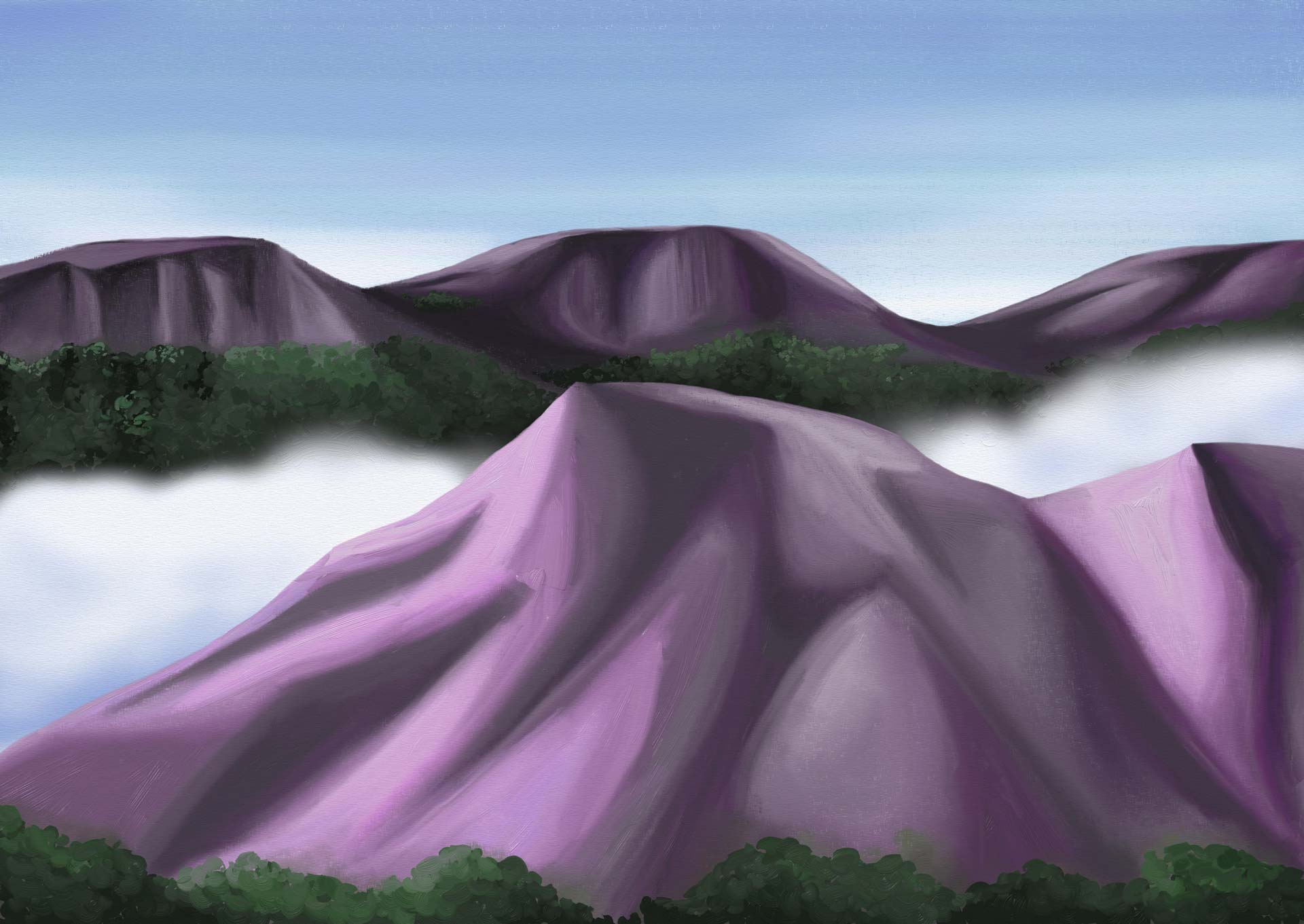

How to be a responsible cat owner in Australia
Here’s a few things you might already know about cats: 1. In Australia, over 1 million native birds are killed by cats every day. 2. In Australia, some 6 million native reptiles are killed by cats every year. 3. In Australia, we LOVE cats: there are about 4 million cats kept as pets. So, how …
We asked some kids to tell us about Australian animals…
We believe the next generation of leaders will be the ones to save our crumbling ecosystems. Australia is in the midst of a biodiversity crisis, and a key part of saving these incredible animals is knowing how special they are and falling back in love with nature. People will save the things they love. And …
We asked some kids to tell us about Australian animals… Read More »
Invasive predators gone from Newhaven
This article was originally published as ‘Newhaven Wildlife Sanctuary Stage 1 Declared Feral-free’ on Australian Wildlife Conservancy’s News site. AWC’s ambitious project to restore central Australia’s lost biodiversity at Newhaven Wildlife Sanctuary has reached a new milestone – the eradication of all feral predators from the 9,400-hectare fenced area, making Newhaven home to the largest …
ALBATROSS: An emotional migration
We know what we have done to the world, and we have the technology to fix it. Do we, and our future leaders, have the motivation? In the heart of the great Pacific, a story is taking place that may change the way you see everything. ALBATROSS is a documentary offered as a free …
We can still save Australia’s animals!
There is a LOT of negative news out there about climate change, the biodiversity crisis and the impact we’re having on our planet. And rightly so… Yes, we’re having disastrous effects and have pushed into the sixth extinction without looking back. However, it isn’t all bad – there are still ways to fix this, and …
Meet BOMBi – Australia’s Teddy Bear Bee
The Australian Teddy bear bee is BOMBi! Australia’s Teddy bear bee (Amegilla bombiformis – or as our Rangers know him: BOMBi) is one of the many Australian pollinators suffering from habitat destruction and industrial agriculture. In ANiMOZ, BOMBi is a Base species who can be found in the Coast BiOME and helps rangers overcome Floods, …
Eastern quolls back in the wild on the mainland
In 2018, the Eastern quoll (RiNU, for the ANiMOZ Rangers out there) was returned to the wild in New South Wales, after going extinct on the mainland 50 years ago. This important predator of Australian forests and scrubland still survives in Tasmania, but human persecution and invasive species wiped them out on the mainland …
The first wild-born Bilby in NSW in 100 years!
Rangers, we’ve got exciting news to tell you about LAGOTi (The Greater bilby)! Ecologists with Australian Wildlife Conservancy have recorded the first Bilby born in a NSW National Park in more than a century! Last year the NSW Government’s Saving Our Species program supported AWC in returning Bilbies – one of Australia’s most iconic threatened …
How is ANiMOZ supporting Aussie Ark?
Here at Ranger Headquarters, we aim to improve the futures of Australia’s animals. They are facing dangers on all sides. What better way than to support the work of Aussie Ark? Pre-sales instead of Crowdfunding We considered raising funds for the first print of ANiMOZ – Fight for Survival through a crowdfunding platform like Kickstarter. …
Introducing ANiMOZ – Fight for Survival!
Welcome, Rangers, to the game changing conservation! In the world of ANiMOZ, you are a Ranger tasked with protecting rare and endangered animals, and building healthy ecosystems to let your species thrive. The world of ANiMOZ… “Deep in the dark of the forest under a starlit night sky, RiNU* emerges from a hollow log. …
- « Previous
- 1
- …
- 3
- 4
- 5
